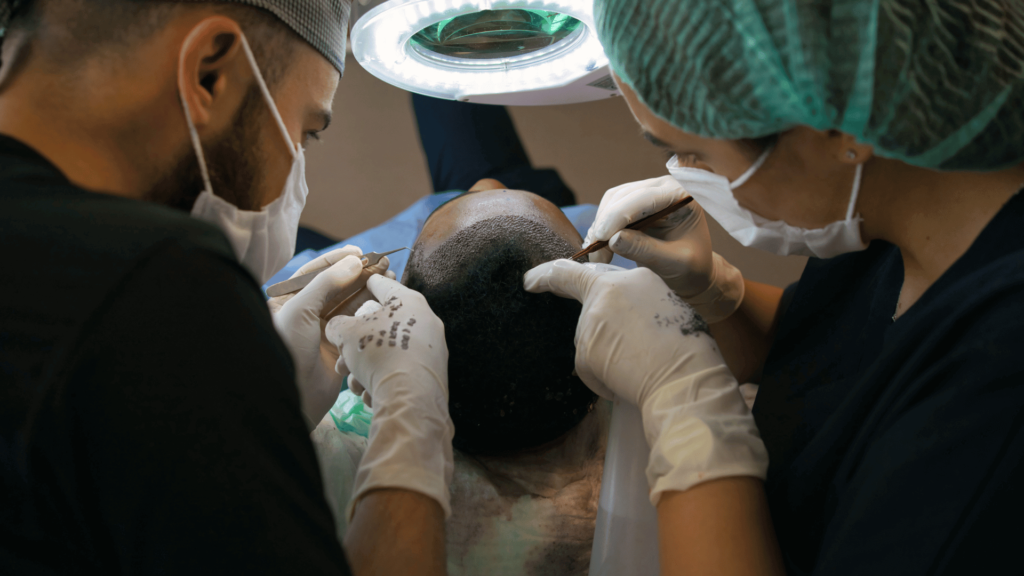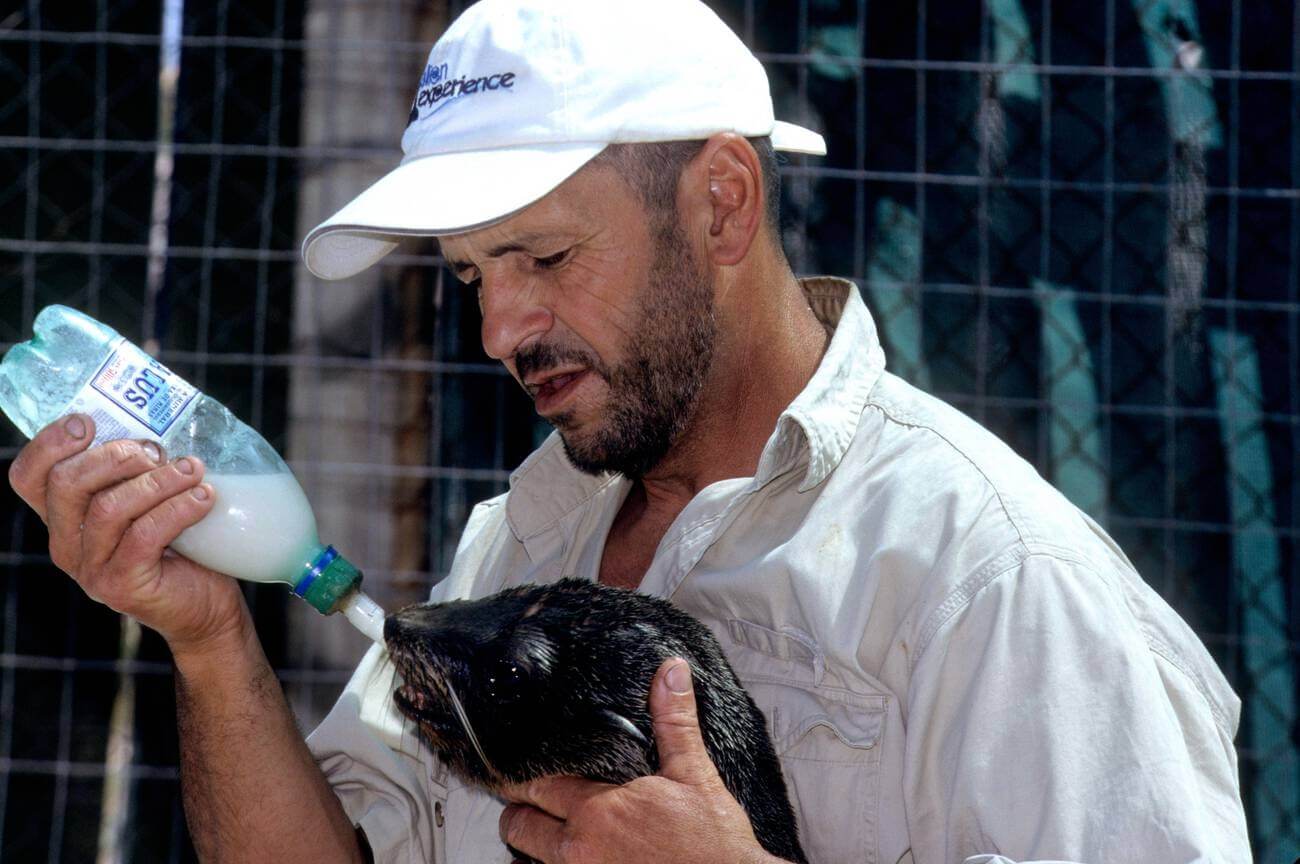Are you interested in pursuing a career as a hair transplant technician? If so, you’ve come to the right place. As a hair transplant technician, you will work closely with surgeons in performing hair restoration procedures. This job demands a great deal of precision and attention to detail, as the quality of your work significantly impacts patient satisfaction and the overall success of the transplant. This guide provides comprehensive information on necessary qualifications, relevant courses, and the essential skill development required to excel in this field.
Understanding Hair Transplantation

If you are interested in becoming a hair transplant technician, it is important to have a basic understanding of hair transplantation procedures. Hair transplantation is a surgical procedure that involves moving hair follicles from one part of the body to another. The most common type of hair transplantation is called follicular unit transplantation (FUT), which involves removing a strip of hair-bearing skin from the back of the scalp and dissecting it into individual hair follicles to be transplanted to the balding areas of the scalp.
Basics of Hair Transplant Procedures
During a hair transplant procedure, the surgeon will first administer local anesthesia to the patient’s scalp. Then, the surgeon will make small incisions in the balding areas of the scalp where the hair follicles will be transplanted. The hair follicles are then carefully inserted into the incisions, one by one, to create a natural-looking hairline.
Hair transplant procedures can take several hours to complete, depending on the number of hair follicles that need to be transplanted. Patients may experience some discomfort and swelling after the procedure, but this typically resolves within a few days.
The Role of a Hair Transplant Technician
As a hair transplant technician, your role is to assist the surgeon during the hair transplant procedure. Your responsibilities may include:
- Preparing the patient for the procedure, including cleaning and numbing the donor and recipient areas
- Harvesting and dissecting the follicular units
- Implanting the follicular units into the recipient area
- Monitoring the patient during the procedure and ensuring their comfort and safety
- Cleaning and sterilizing the equipment and instruments used during the procedure
Educational Requirements
If you are interested in becoming a hair transplant technician, there are certain educational requirements you must meet to get started. These requirements include a necessary academic background and specialized training programs.
Necessary Academic Background
To become a hair transplant technician, you will need to have a high school diploma or equivalent. Some clinics may also require you to have a background in healthcare, such as a Certified Nursing Assistant (CNA) or a Medical Assistant certification. This is because the job of a hair transplant technician requires technical knowledge and skills to perform hair transplant procedures.
Having a background in nursing or a related field can be beneficial as it will provide you with the necessary knowledge and skills to understand the anatomy of the scalp and hair follicles. This will help you to better understand the procedures involved in hair transplantation.
Specialized Training Programs
In addition to a necessary academic background, specialized training programs are also required to become a hair transplant technician. These programs provide comprehensive knowledge and practical skills needed to perform hair transplant procedures.
There are several hair transplant technician courses available that provide training in patient consultation, hair transplant procedures, and post-operative care. These courses are designed to foster a hands-on approach, ensuring on-field expertise right from consultation to post-operative care.
The duration of these courses can vary depending on the program you choose. Some courses can be completed in as little as 8 weeks, while others may take longer.
In conclusion, becoming a hair transplant technician requires a combination of academic background and specialized training programs. By meeting these requirements, you can gain the necessary knowledge and skills to perform hair transplant procedures with confidence and expertise.
Certification Process
If you’re looking to become a hair transplant technician, obtaining certification is a crucial step toward building a successful career in this field. Certification is a way to demonstrate your knowledge and skills to potential employers and clients, and it can also increase your earning potential.
Certification Bodies
There are several certification bodies that offer certification programs for hair transplant technicians. The American Board of Hair Restoration Surgery (ABHRS) is one of the most well-known and respected certification bodies in the field. They offer a rigorous certification program that requires a significant amount of education and training.
Another certification body is the International Society of Hair Restoration Surgery (ISHRS). They offer a certification program that focuses on the technical skills required to perform hair transplant procedures.
Examination and Assessment
The certification process typically involves an examination and assessment of your skills and knowledge. The exact requirements may vary depending on the certification body, but you can expect to be tested on topics such as:
- Anatomy and physiology of the scalp and hair
- Hair transplant techniques, including follicular unit transplantation (FUT) and follicular unit extraction (FUE)
- Patient evaluation and consultation
- Post-operative care and management
You may also be required to demonstrate your practical skills by performing hair transplant procedures under the supervision of a certified hair transplant surgeon.
Overall, obtaining certification as a hair transplant technician can be a challenging process, but it can also be incredibly rewarding. Certification can help you stand out in a competitive job market and demonstrate your commitment to providing high-quality care to your clients.
Hands-On Experience
To become a hair transplant technician, you need hands-on experience in the field. This experience can be gained through internships, apprenticeships, and clinical practice.
Internships and Apprenticeships
Internships and apprenticeships are a great way to gain hands-on experience in the field of hair transplant technology. These programs allow you to work alongside experienced technicians and surgeons and learn the ins and outs of hair transplant technology.
During an internship or apprenticeship, you will be responsible for assisting in hair transplant surgeries, preparing equipment, and maintaining a sterile environment. You will also learn how to communicate with patients, take detailed medical histories, and evaluate patient needs.
Clinical Practice
Clinical practice is another way to gain hands-on experience in the field of hair transplant technology. Clinical practice involves working in a medical setting and providing care to patients under the supervision of a licensed physician or surgeon.
During clinical practice, you will have the opportunity to work with patients who are undergoing hair transplant surgery. You will be responsible for assisting in the surgery, monitoring the patient’s vital signs, and ensuring that the patient is comfortable throughout the procedure.
Overall, gaining hands-on experience is crucial to becoming a successful hair transplant technician. Internships, apprenticeships, and clinical practice provide valuable opportunities to learn from experienced professionals and gain the skills and knowledge needed to excel in the field.
Career Advancement
As a hair transplant technician, there are several career advancement opportunities available to you. Here are some of the ways in which you can advance your career:
Continuing Education
Continuing education is an essential part of career advancement for hair transplant technicians. You can take courses and attend workshops to learn new techniques and stay up-to-date with the latest advancements in the field. Continuing education can also help you to improve your skills and knowledge, making you a more valuable asset to your employer.
Specialization Opportunities
As a hair transplant technician, you can specialize in a particular area of the field. For example, you can specialize in FUT (Follicular Unit Transplantation) or FUE (Follicular Unit Extraction). Specializing in a particular area can help you become an expert in that area, making you a valuable asset to your employer.
You can also specialize in working with a particular type of patient, such as patients with scarring alopecia or patients with hair loss due to chemotherapy. Specializing in an individual patient group can help you become an expert in that area, making you a valuable asset to your employer.
In conclusion, as a hair transplant technician, there are several career advancement opportunities available to you. By continuing your education and specializing in a particular area, you can become an expert in the field and advance your career.
Frequently Asked Questions
What exciting training programs are available for aspiring hair transplant technicians?
There are many exciting training programs available for aspiring hair transplant technicians. You can choose from various programs that offer hands-on training, classroom instruction, and online courses. Some of the most popular training programs include the American Board of Hair Restoration Surgery (ABHRS) certification program, the International Society of Hair Restoration Surgery (ISHRS) fellowship program, and the National Hair Society (NHS) certification program.
How can I find hair transplant technician job opportunities?
There are many ways to find hair transplant technician job opportunities. You can search online job boards, such as Indeed or Glassdoor, or visit the websites of hair transplant clinics in your area. You can also network with other hair transplant technicians and surgeons, attend industry conferences and events, and join professional organizations, such as the ISHRS or the NHS.
What’s the average salary for a hair transplant technician, and what growth prospects exist?
The average salary for a hair transplant technician in the US is around $40,000 to $60,000 per year. However, salaries can vary depending on your location, experience, and the type of clinic you work for. The growth prospects for hair transplant technicians are excellent as the demand for hair restoration procedures continues to rise.
What specific skills are essential to excel as a hair transplant technician?
To excel as a hair transplant technician, you need to have excellent communication skills, attention to detail, and manual dexterity. You should also have a good understanding of anatomy and physiology, as well as knowledge of hair transplant techniques and technologies. Additionally, you should be able to work well under pressure and have excellent problem-solving skills.
What degree or certification is required to start a career in hair transplantation?
To start a career in hair transplantation, you need to have a high school diploma or equivalent. Some clinics may also require you to have a background in healthcare, such as a Certified Nursing Assistant (CNA) or a Medical Assistant certification. Pursuing a relevant degree or certification program will provide you with comprehensive knowledge and practical skills.
How do I transition from a hair transplant technician to a hair transplant surgeon in the US?
To transition from a hair transplant technician to a hair transplant surgeon in the US, you need to pursue a medical degree, such as an MD or DO. After completing your degree, you need to complete a residency program in plastic surgery or dermatology and become certified by the American Board of Plastic Surgery or the American Board of Dermatology.





